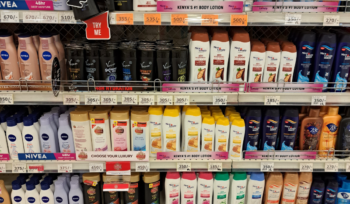- 01/05/2020
- Posted by: Julien Garcier
- Categories: Articles, Kenya
The first case of Covid-19 in Kenya was confirmed on March 13th, and two weeks later, the government imposed a nationwide dusk-to-dawn curfew in an effort to retard the spread of the virus. Tight restrictions on movement in and out of some of the country’s largest urban centres were also introduced. On April 15th, it was announced that these measures would be extended for a further 21 days.
The number of cases has been relatively low
By the end of April, there were 396 confirmed cases of Covid-19 and 15 deaths in Kenya – a low figure, even in the context of Africa. Since April 3rd, the number of new cases reported in a single day has not exceeded 20.
Significant evidence of increased material deprivation
At the moment, the economic effects of Covid-19 in Kenya far outweigh its epidemiological impact. A telephone survey of almost 1,800 people that was conducted by NGO Population Council Kenya with residents of five low-income suburbs of Nairobi (Kibera, Huruma, Kariobangi, Dandora, and Mathare) on April 13th and 14th has found significant evidence of increased material deprivation (particularly food insecurity).
Squeezed between declining incomes and rising living costs
The survey found that just over four-fifths of respondents had seen a complete or partial loss of employment/income due to Covid-19. 45% reported a partial loss of employment/income, with a further 36% reporting a complete loss. Meanwhile, 87% reported that their household expenses had increased, with 78% noting an increase in the cost of food.
[visualizer id=”10034″]
Source: Population Council Kenya
Many are going hungry
It also found that food security was a major issue: 68% said they had skipped meals during the two weeks prior to survey, with 98% of these reporting that this was due to the economic impact of Covid-19. Moreover, 70% reported that others in the community were skipping meals or eating less for the same reason.
Women are more vulnerable than men
In general, women have been more impacted by the crisis than men: 38% of women said they had completely lost their income (compared to 33% of men), 71% said they had skipped meals (compared to 64% of men), and 11% said they had foregone healthcare services (compared to 5% of men).
Assistance is not getting to those who need it most
A mere 7% of respondents said they had received assistance since the start of the crisis. Of those that had received it, 72% said they had received soap or hand sanitiser, while 40% had received food. Regarding the source of these donations, 39% came from “good Samaritans/corporate donations,” 37% from NGOs, and 35% from the government. However, those who reported missing meals or losing income were found to be less likely to have received assistance than those who had not.
The rest of the country may be be faring slightly better
These findings are backed by other data sources: According to Google Community Mobility Reports, daily visits to workplaces in Nairobi County declined by an average of 42% during the first half of April, compared with the average figure for the same day of the week during a base period of January-February 2020. This compared with a national average decline of 35%.
[visualizer id=”10028″]
Source: Google Community Mobility Reports
These reports use aggregated, anonymised data collected from Android phones to chart trends in mobility over time by geography across a number of high-level categories, including retail and recreation, grocery retailers and pharmacies, and workplaces.
Daily visits to retail and recreation venues, such as shopping malls, cinemas, and cafés (but excluding supermarkets and pharmacies) fell by an average of 50% in Nairobi, compared with a national average of 45%. For grocery retail outlets and pharmacies, these figures were 38% and 32% in Nairobi and nationally, respectively. These data suggest that hardship arising arising from Covid-19 may be somewhat less acute outside of the capital.
To read Population Council Kenya’s full report (“Nairobi Informal Settlements: Covid-19 Knowledge, Attitudes, Practices & Needs”), click here





